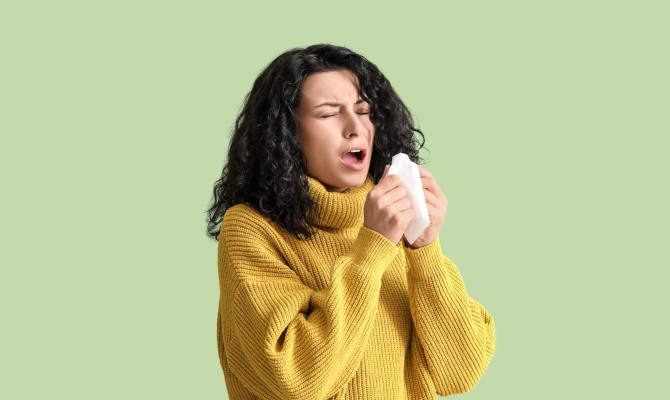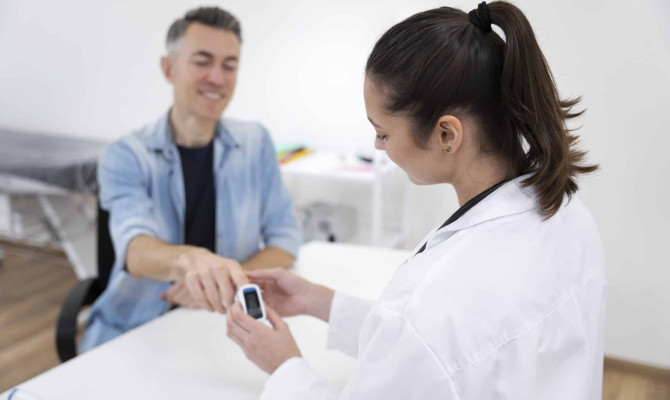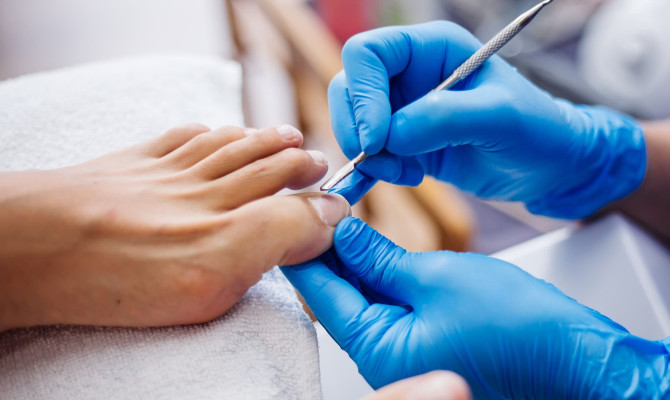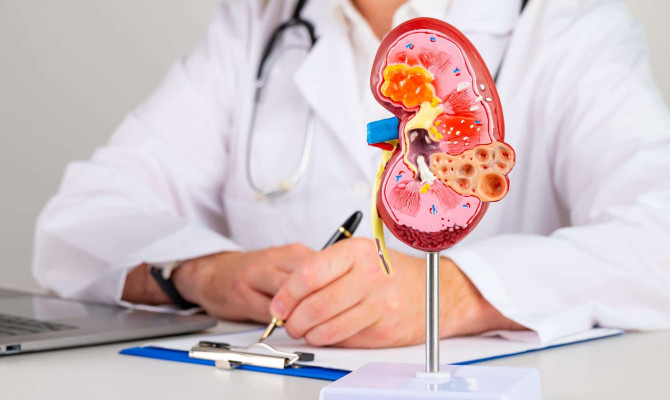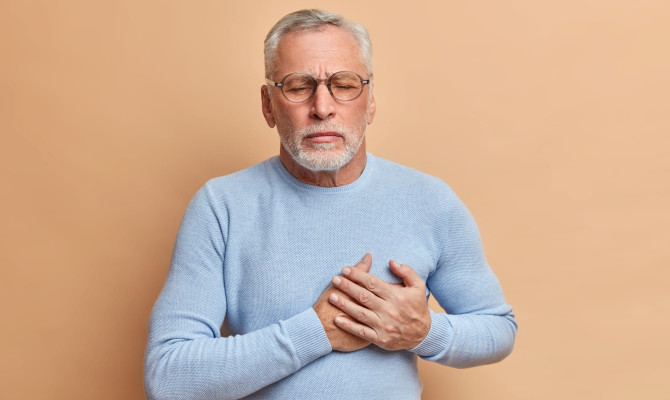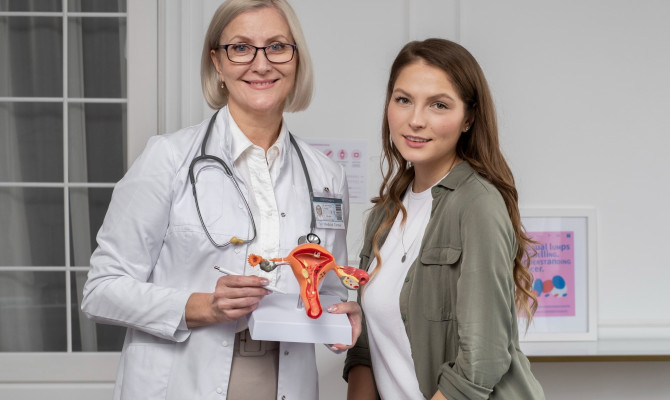Chemotherapy: An Important Procedure to Understand

- Chemotherapy
- 22 Aug 2023
Overview
What is Chemotherapy?
Chemotherapy is a potent cancer treatment method that uses powerful drugs that cause damage and destruction of cancerous cells.
Chemotherapy has been the mainstream of cancer treatment for decades. It is still one of the most popular ways to treat cancer today. Approximately 25% of cancer cases are treated with chemotherapy, either as a standalone treatment or in combination with other surgical or radiotherapy treatments.
Chemotherapy drugs are referred to as anti-cancer drugs, chemotherapeutic drugs and antineoplastic agents. It can be administered orally, subcutaneously, intravenously, or topically.

Uses
What are the uses of Chemotherapy?
The mechanism of action of chemotherapy 1Uses| Researched based study from Cancer.net is that Chemotherapy exerts a systemic effect by circulating through the bloodstream to reach various parts of the body.
Chemotherapy aims to:
- Achieve a complete cure for cancer.
- Reducing cancer recurrence risk.
- Inhibit the growth of cancer cells
- Relieve cancer symptoms
Achieve a complete cure for cancer
- To achieve long-term solution and to reduce the risk of cancer recurrence, primary treatment strategies focus on curing or preventing the reappearance of cancer. This approach is known as Curative chemotherapy.
Reducing cancer recurrence risk
- Chemotherapy may be administered along with radiation therapy or surgery. The main aim is to reduce the size of the tumor. This treatment approach is referred to as Neoadjuvant chemotherapy.
Inhibit the growth of cancer cells
- Chemotherapy is utilized to get rid of residual cancer cells. This treatment is referred to as adjuvant chemotherapy.
Relieve cancer symptoms
- Chemotherapy can enhance the quality of life by slowing down the progression of cancer cells and its spread.
Techniques
How can Chemotherapy be administered?
There are numerous techniques to administer chemotherapy:
Intravenous chemotherapy
- Medications need to be injected right into a vein. This kind of chemotherapy is known as intravenous or IV. Time period may range from a few minutes to hours.
- Through a small, flexible tube known as a catheter, the chemotherapy medications are directly injected into a vein. The catheter may be kept in place for several treatments and is often put into a big vein, such as one in the arm or chest.
Oral chemotherapy
- The Chemotherapeutic drugs may be given in the form of pills, liquids and capsules. You can pick up your prescription at the pharmacy and use the medication at home.
Injectable chemotherapy
- The chemo drug injection may be administered intramuscularly or subcutaneously. These injections might be given to you in your leg, arm or abdomen.
Chemotherapy into the artery
- Chemotherapeutic drugs can be injected directly into the artery that has caused the malignancy. It is also known as Intraarterial chemotherapy.
Chemotherapy into the abdomen or peritoneum
- Some tumors may need the drug to be injected directly into your abdomen. Peritoneal malignancies like intestine, liver and stomach respond well to this kind of therapy.
Topical chemotherapy
- Some chemotherapy treatments are available as creams that you apply directly onto your skin.2Techniques| Researched based study from Chemocare.com
What are the cycles of chemotherapy?
- Chemotherapy is often administered over a span of many “cycles.” These cycles consist of treatment intervals (sometimes lasting one or more days) and rest intervals (days or weeks) in between.
- Your body’s healthy cells may recuperate during the rest times. Cancer cells often have a lower capacity for self-repair, which means they won’t be as well healed before the next round of therapy.
Types
Types of Chemotherapy
Chemotherapy medications come in a wide variety of forms. Each one targets the cell at different times during its development and division.
Among the most common forms of chemotherapy are:
Alkylating drugs
- These function by ‘clogging up’ DNA molecules and inhibiting their function. The cell must have fully functional DNA in order to continue growing and dividing. Alkylating chemicals interfere with a cell’s capacity to live and grow by attaching to DNA.4Types| Researched based study from Nlm.nih.gov
Platinum drugs
- These function in the same way as alkylating agents.
Antimetabolite chemotherapy
- These drugs have the same shape and structure as the smaller molecules that make up DNA. This can make it difficult for the cell to make new copies of its DNA. If the cell doesn’t make new DNA, it can’t grow.
Anti-topoisomerase agents
- Topoisomerase enzymes cut and reseal long DNA strands. During cell division, new DNA must be generated. Blocking these enzymes makes cell survival tougher, particularly while dividing.
Microtubule interacting agents
- These medications damage cell-structure-forming microtubules. Microtubules transport and shape cells. Cell division requires microtubules.
Plant Alkaloids
- They are chemicals derived from plants that stop cells from dividing and proliferating. They show optimal functioning at certain times of the cell’s growth cycle.
Antitumor antibiotics
- These medications break down DNA strands that stop cells from dividing. Along with this, your doctor may also prescribe topoisomerase inhibitors and mitotic inhibitors.4Types| Researched based study from Nlm.nih.gov
Side effects
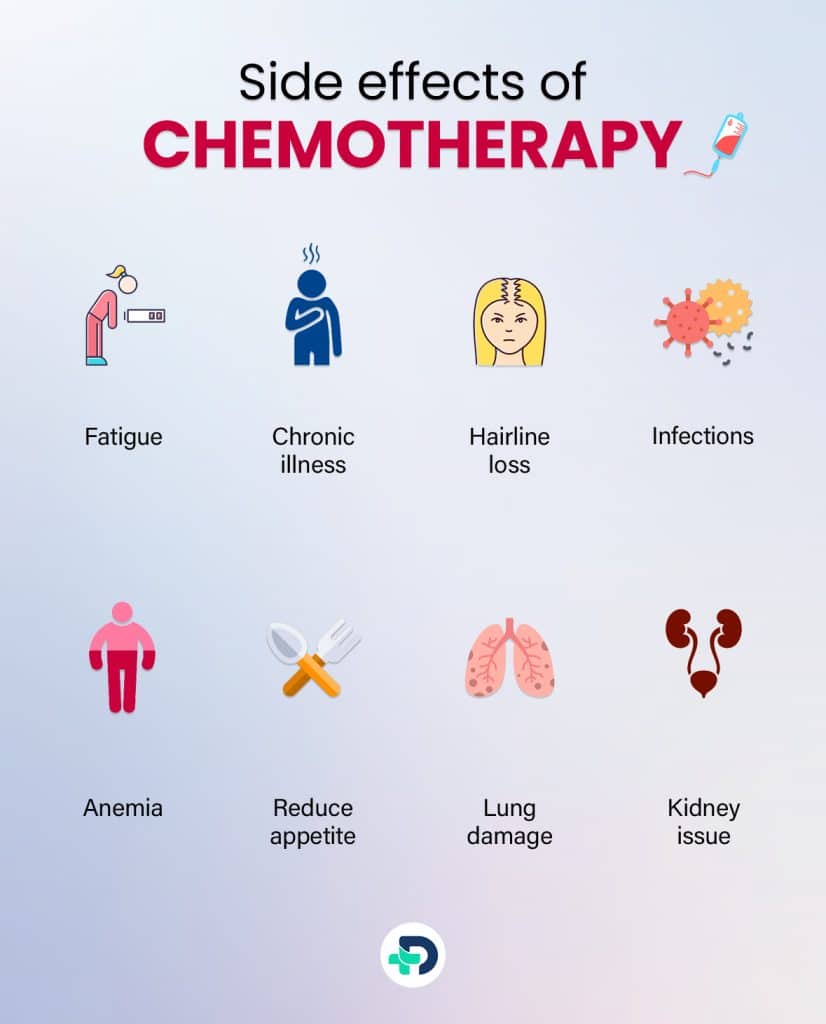
Side effects of Chemotherapy
The following is a list of some typical adverse effects of chemotherapy:
Short term side effects
- Fatigue
- Chronic illness
- Hairline loss
- Infections
- Anemia
- Bruises
- Pain in the mouth
- Reduced appetite
- Skin changes
- Nail Changes
- Memory and concentration issues 3Side effects| Researched based study from Macmillan.org.uk
Long term side effects
- Infertility
- Kidney issues
- Heart problems
- Nerve damage
- Lung damage
- Early menopause
- Chances of development of another type of cancer
Fatigue
- It is the frequent adverse effect of chemotherapy. Chemotherapy patients may quickly get exhausted while carrying out daily tasks due to chemotherapeutic agents.
Chronic illness
- Chemotherapy may make one feel ill and even make them sick. To reduce this, doctors give anti-sickness medications.
Hairline Loss
- It is most likely the outcome of a medication-related adverse effect from the operation. It begins within the first few weeks of therapy.
- Hair loss may happen everywhere on the body, including the face, arms, scalp and legs. It is temporary, and shortly after therapy is over, hair starts to regrow.
Infections
- Chemotherapy could make it difficult for the body to fight against various infections. The patient becomes more prone to contracting a number of illnesses that might badly harm them.
Anemia
- Anemia may be identified by signs including low energy, breathlessness, a pale skin, and palpitations.
Bruises
- The quantity of platelets in the blood may also be decreased by chemotherapy. This makes it easier to get facial bruises, nosebleeds that are severe, and gum bleeding.
Pain in the Mouth
- The lining of the mouth mucosa is likely to become painful after chemotherapy. Patients may express pain while speaking, eating, or drinking, as well as dry mouth, oral ulcers, diminished taste, and poor smell.
Reduced Appetite
- It’s important to consume nutritious snacks or smaller meals on the day of the therapy. Smaller meals throughout the day may be more advantageous than larger ones.
Skin changes
- Some chemotherapy drugs have the ability to alter the appearance of the skin. They may result in the skin being dry, discolored, sensitive, painful, red, or itchy. The most effective technique to relieve these symptoms may be via topical therapies.
Nail changes
- Chemotherapy may cause development of white lines across the nails, making them brittle or flaky. But after the treatment is through, they often return to normal.
Memory and Concentration Issues
- Patients may have problems with their short-term memory, focus, and attention span. Once the therapy is through, the symptoms often start to get better.
Others
- Along with a variety of mental health issues, patients are also prone to have disorders of sleep habits, fertility, libido, diarrhea, and constipation.
- Some chemotherapy medications may have unpleasant side effects, including burning, numbness, shooting pain, and tingling.
Long term side effects
Infertility
- Chemotherapy can damage the ovaries or testicles leading to loss of fertility.
Kidney issues
- Chemotherapy drugs can cause damage to the kidneys over time.
Heart problems
- Some chemotherapy drugs, particularly anthracyclines, can weaken the heart muscle and increase the risk of heart failure or cardiomyopathy.
Nerve damage
- One typical adverse effect of various chemotherapy medications is peripheral neuropathy. It can cause tingling, numbness, or pain in the hands and feet.3Side effects| Researched based study from Macmillan.org.uk
Lung damage
- Shortness of breath or reduced lung function is seen with chemotherapy.
Early menopause
- hot flashes, mood changes, and vaginal dryness is noticed after chemotherapy treatment.
Chances of development of another type of cancer
- Some chemotherapy medications, particularly alkylating chemicals, might raise the possibility of getting a secondary malignancy.
Is chemotherapy painful?
- Chemotherapy does not by itself need discomfort since treatment includes administering medicine through a variety of routes, including intravenous (IV) infusion, oral tablets, or injections.
- The needle insertion during chemotherapy administration through IV might be painful.
Precautions
Precautions
Some precautions need to exercise in following conditions:
Chemotherapy and pregnancy
- Some pregnant women can have chemotherapy, but sometimes chemotherapy and other cancer treatments are put off until after the baby is born.
- Chemotherapy during the first trimester (12 weeks) raises the chance of birth defects.
- However, there are other ways that chemotherapeutic agents might impact a fetus. For instance, chemotherapy might result in preterm labor, and preterm infants that have additional health concerns including breathing disorders.
- If you are receiving chemotherapy while pregnant, you will typically be told to cease at least 3 to 4 weeks before the due date. This is because your chance of bleeding or contracting an infection during labor is increased by the negative effects of chemotherapy on your blood cells.5Precautions| Researched based study from Cancer.gov
Chemotherapy and breastfeeding
- It is unsafe for the baby to breastfeed while receiving chemotherapy. Breast milk can pass chemotherapy medications to the infant, which could result in major health problems or consequences.
- These medications can impair a baby’s immune system, blood cell formation, and general health as they affect the baby’s growth and development.
Chemotherapy and sexual life
- Cancer is not communicable, therefore having or enjoying sexual activity shouldn’t be restricted for someone who is receiving chemotherapy. The medications have no effect on a person’s capacity for sexual activity.
- Some medical professionals think that the medications have an impact on seminal and vaginal fluids. To safeguard the partner, doctors ncourage their patients to utilize contraception for a few days following treatment.
- Cancer cannot be transmitted via sexual intercourse, and neither can medications make it worse.
Chemotherapy and fertility
Chemotherapy may impact fertility is as follows:
In Women
- Oocytes: Some chemotherapy medications may cause harm to the ovaries’ egg reserves, which may result in an early menopause.
- Menstrual cycle: Chemotherapy may result in irregular menstrual periods or excess of menstruation.
- Early Menopause: Early menopause may sometimes occur in women, which can result in a permanent loss of fertility.
So, egg freezing and embryo cryopreservation can be done to preserve fertilization in women.
In Men
- Sperm production: Chemotherapy may have an impact on sperm production, resulting in either temporary or permanent infertility.
- Sperm Quality: Even if sperm production continues, certain chemotherapy medicines may damage sperm DNA, which may have an impact on fertility.
So, sperm banking can be done to preserve fertilization in men.
Chemotherapy and alcohol
- Alcohol should normally be avoided during treatment. Alcohol and chemotherapy medications may interact and aggravate negative effects. Additionally, drinking might add to the burden already placed on the liver by chemotherapy.
Chemotherapy and herbal supplements
- Before beginning chemotherapy, it’s critical to discuss all drugs, including vitamins and herbal supplements, with your doctor. Some dietary supplements may interact with chemotherapy medications or lessen the efficacy of treatment.
Chemotherapy and traveling
- Traveling while receiving chemotherapy takes considerable thought and preparation. It depends on the patient’s general condition, the destination, and the stage of the therapy. The time of travel schedule is important. Because certain chemotherapy regimens have precise cycles, it’s important to schedule your vacation during the time when you’ll likely feel the best and have the fewest side effects.
Tips
Selfcare Tips to follow after Chemotherapy
After chemotherapy, concentrate on healing and wellness. Some suggestions:
Follow-Up Care
- Attend all medical visits. To track your development and treat any issues, you need regular medical exams.
Rest and Pace
- Chemotherapy is physically and emotionally exhausting. Take a nap and recharge. Don’t overwork and pay attention to your body.
Eat Well
- Eating well may help your body get back its strength. Eat fresh produce, lean meats, and healthy grains. Consult a nutritionist for nutritional issues.
Stay Hydrated
- Drink plenty of water to throw away pollutants.
Gradual Return to Physical Activity
- Light exercise as you acquire strength. Slowly increase intensity as you feel comfortable.
Manage Side Effects
- Chemotherapy side effects 5Tips| Researched based study from Cancer.gov may last. Your healthcare staff may suggest solutions to address recurring difficulties.
Accept Emotional Support
- Cancer treatment may be emotionally difficult. Get emotional assistance from family, friends, support groups, or counselors.
Quit Smoking and Limit Alcohol
- Smoking slows recovery. Limit alcohol since it may interfere with drugs and harm your health.
Skincare
- Chemotherapy may dry and irritate skin. Use moderate skincare and avoid sun exposure.
Maintain Oral Health
- Chemotherapy might impair oral health and cause oral ulcers. So, Visit the dentist to know what needs to be done.
Celebrate accomplishments
- Celebrate even tiny healing accomplishments. Every step counts.
Be Patient
- Healing takes time. Give yourself time to heal.
Takeaway
Key Takeaway
- Chemotherapy is a successful cancer treatment. Several considerations are taken into account before chemotherapy is administered.
- The chemotherapy regimen is determined based on factors such as the type and stage of the disease, the patient’s age, overall health, body weight, other medical conditions, and previous cancer treatments.
- Chemotherapy has disadvantages in addition to its benefits in the treatment of cancer. With the right treatment strategies, these adverse effects may be managed, nevertheless.
- A healthy diet, light exercise, avoiding foods that can cause cancer, meditation, quitting smoking, abstaining from alcohol, staying hydrated, and maintaining a healthy weight are just a few strategies that can help lessen the severity of side effects, increase the effectiveness of treatment, prevent cancer recurrences, and improve quality of life in general.
Any feedback on this article?
 This Articles content was accurate
This Articles content was accurate Very Informative Article
Very Informative Article I have a question or a comment
I have a question or a comment
 This article contains inaccurate content
This article contains inaccurate content This article was not helpful
This article was not helpful I have a question or a comment
I have a question or a comment
We appreciate your helpful feedback!
Checkout our social pages
References
-
American Society of Clinical Oncology
What is Chemotherapy? | Uses
-
Chemocare
What is Chemotherapy? | Techniques
-
Macmillan Cancer Support
Chemotherapy | Side effects
-
National Library of Medicine
Cancer Chemotherapy | Precautions
-
National Cancer Institute
Chemotherapy to Treat Cancer | Tips












